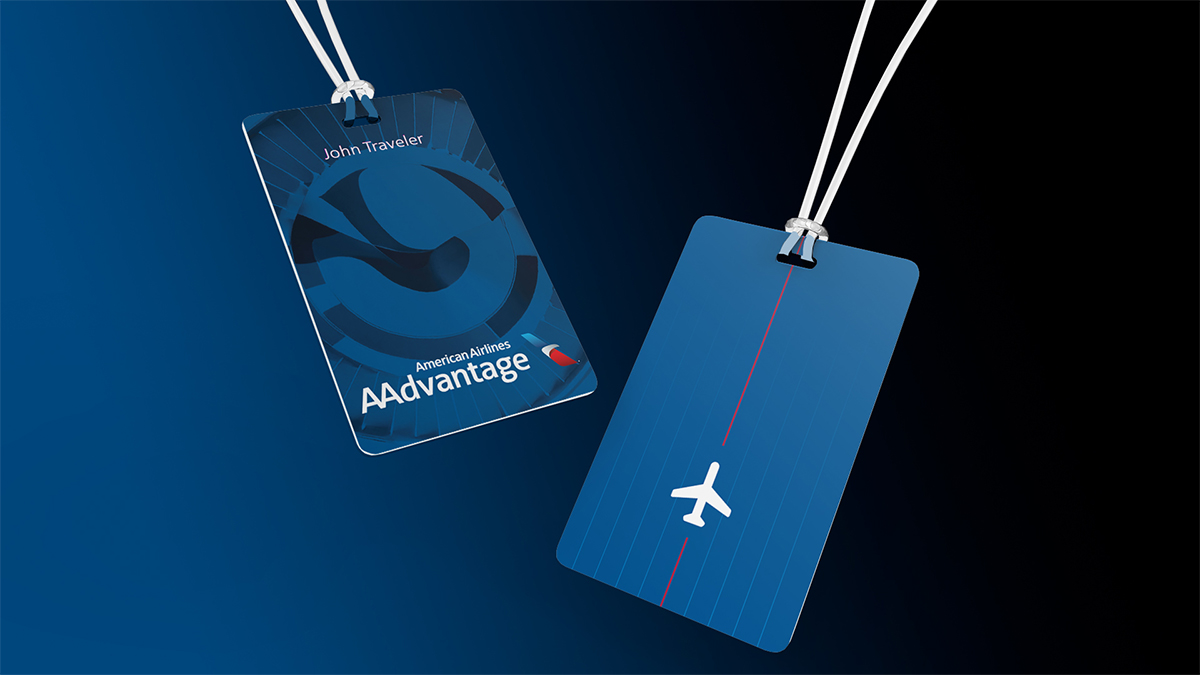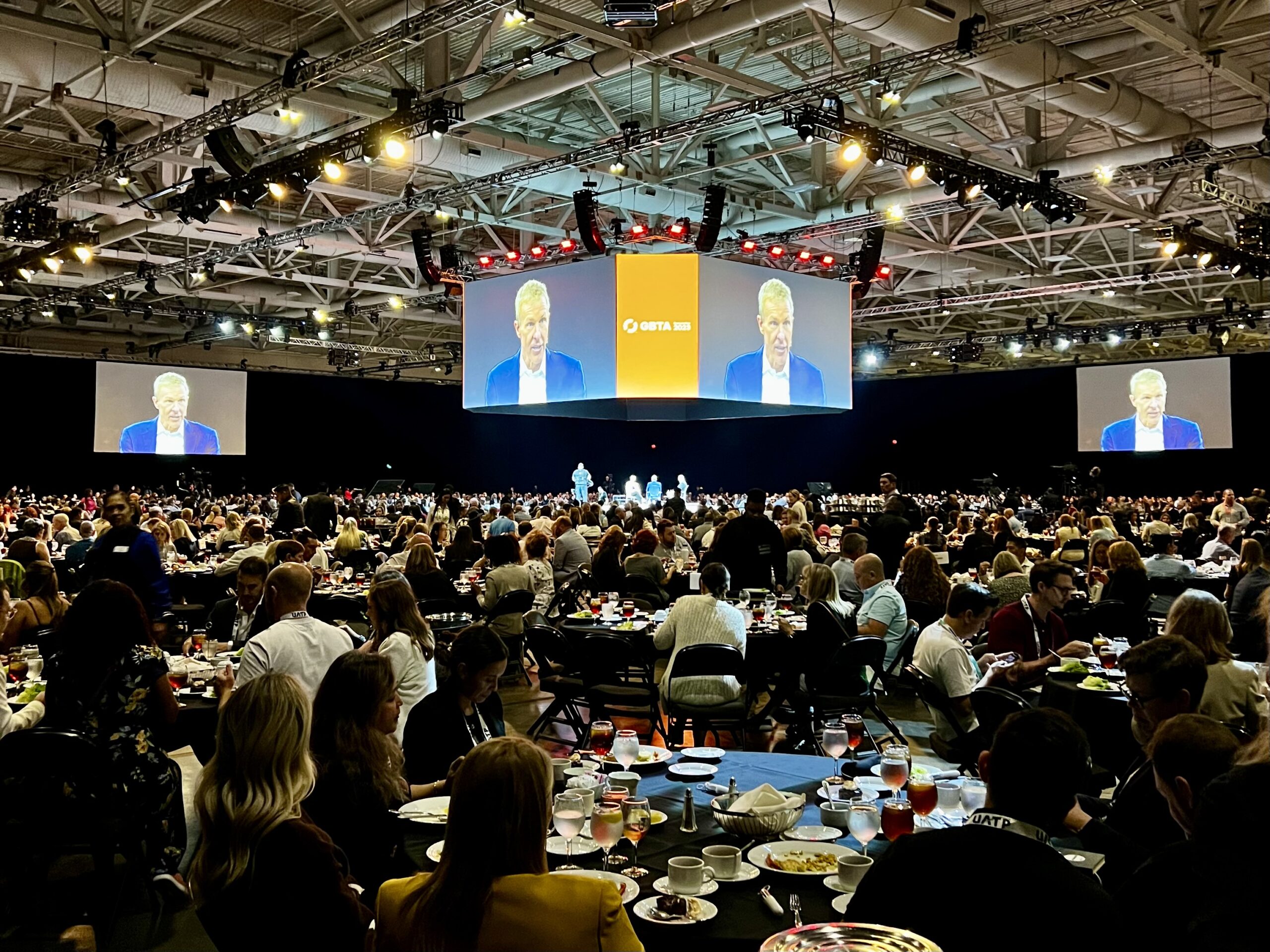How to Request a Voucher from Southwest’s $90 Million Compensation Program
The airline will issue $75 travel vouchers for delays of more than 3 hours, part of its record-setting penalty from the DOT for its December 2022 meltdown
by Lauren Smith
May 6, 2024
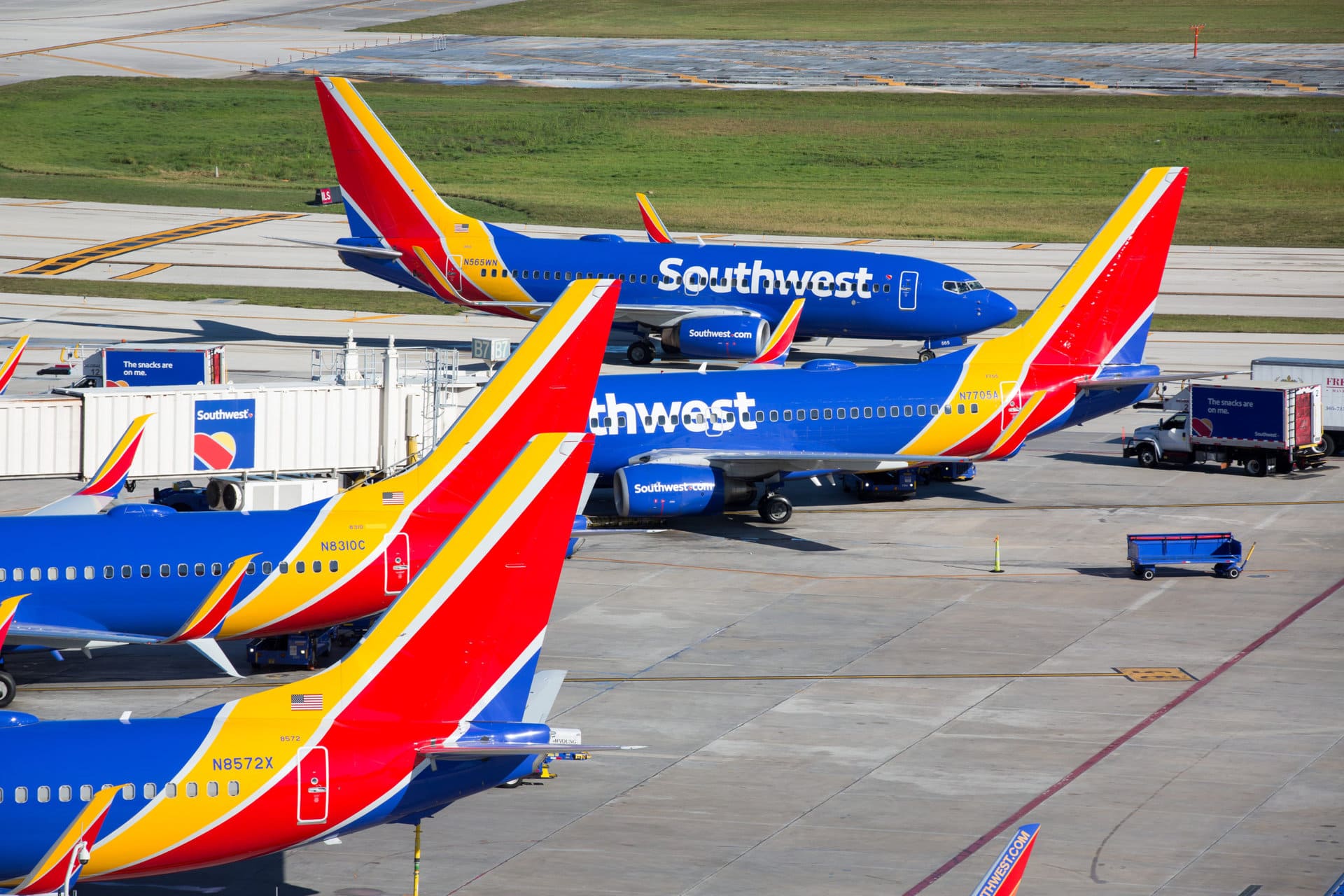
Photo: Southwest Airlines hub at Fort Lauderdale-Hollywood. Courtesy of Southwest Airlines / Stephen M. Keller
Southwest Airlines has begun handing out $75 travel vouchers to inconvenienced passengers, part of the $140 million settlement it reached with the Department of Transportation (DOT) over operational failings during the 2022 holiday season.
As part of the settlement, agreed in December 2023, the Dallas-based airline was required to launch the $90 million compensation program by April 30. The airline announced this week that it had quietly started issuing vouchers on April 16 and had already compensated a few thousand travelers.
Southwest has agreed to provide transferable travel vouchers of $75 or more to passengers arriving three or more hours late to their destination due to delays and cancellations caused by issues under the airline’s control. That includes mechanical faults but excludes weather.

Southwest Airlines winter weather operations in Dallas Love Field on Feb. 17, 2021. // Stephen M. Keller, 2021
The DOT stipulated that the vouchers should be issued to travelers within seven days of their scheduled departure date and should be valid for at least a year.
How to request a voucher
To request a voucher, Southwest customers must fill out an online form on the airline’s website. They have up to a year from their delayed or canceled flight to submit their request.
While the airline is only required to operate the program for three years, airline CEO Bob Jordan told Reuters that consumer programs “rarely change or go away.”
U.S. Transportation Secretary Pete Buttigieg welcomed the start of the compensation scheme. “After the 2022 holiday meltdown, our department held Southwest Airlines accountable — and now the airline is required to compensate passengers for lengthy delays and cancellations that they cause,” he said in a statement.
“We’re pleased to bring these benefits to passengers and further show the flying public that the Biden-Harris Administration has their back.”
The DOT’s $140 million settlement with Southwest, including a $35 million cash fine, is 30 times larger than any previous penalty paid by an airline. The fine’s size reflects the DOT’s tough stance on airline failings under the Biden administration and the magnitude of Southwest’s December 2022 meltdown.
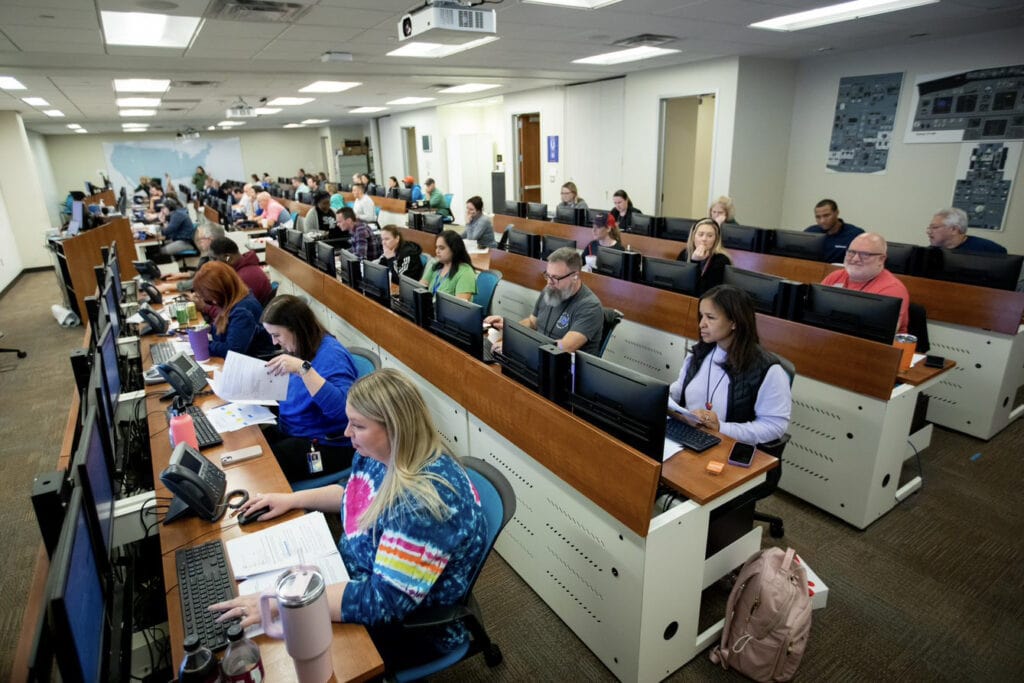
Photo: Courtesy of Southwest Airlines
While poor weather grounded flights across the country during that holiday season, Southwest struggled to resume operations and ultimately canceled 16,900 flights and delayed thousands more many days after the storm had subsided.
Looking Back at Southwest’s Mistakes
A DOT investigation found that Southwest violated consumer protection laws during the incident and blamed, in part, the airline’s underinvestment in its IT systems customer service. During the fiasco, outdated scheduling software meant airline employees had to manually match flight crews with planes, while overwhelmed call centers left both flight crews and stranded travelers on hold for up to eight hours.
Southwest also failed to alert customers via text message or email about delays, contrary to its stated policy and didn’t issue prompt refunds for extras such as seat upgrades on canceled flights.
Around two million travelers were affected, with many missing out on family holidays and planned vacations or left without luggage for days.
In addition to penalties from the DOT, Southwest has paid out more than $600 million to customers affected by the Christmas chaos and pledged to invest more than $1 billion in its IT systems.
Other airlines are required to issue similar compensation.
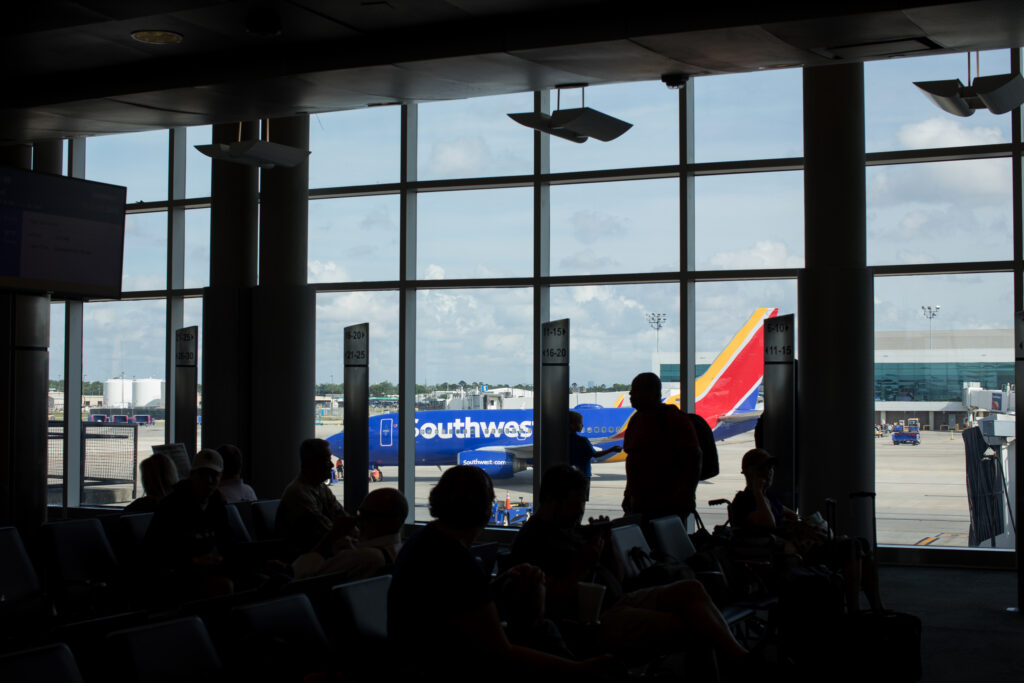
Photo: Houston Hobby. Courtesy of Stephen M. Keller, Southwest Airlines
In 2022, the DOT asked carriers to voluntarily commit to paying customers up to $100 in cash for delays of up to three hours, matching a requirement for airlines in the European Union. None agreed.
President Biden also announced last May that the DOT would propose new rules requiring cash compensation for controllable delays by the end of the year, but those proposals haven’t yet materialized. A pending aviation reform bill before Congress doesn’t mandate compensation either.
Buttigieg suggested that consumers may win compensation another way: through competition between carriers.
He said that Southwest will “really lead the market with the compensation fund, and it will be very interesting to see how other airlines respond – not as punishment but by way of competition.”


